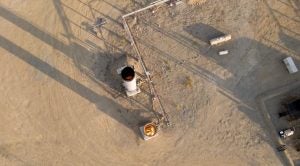 Colorado doesn’t take a back seat to anyone when it comes to protecting residents from oil and gas development, and the state’s track record speaks for itself.
Colorado doesn’t take a back seat to anyone when it comes to protecting residents from oil and gas development, and the state’s track record speaks for itself.
In 2014, Colorado became the first state to directly regulate oil and gas methane emissions. Earlier this year, the state adopted nation-leading well integrity rules to protect residents from leaks and explosions. And just last month, it became the first state in the nation to require air pollution monitoring during oft-neglected early stages of oil and gas drilling.
That’s what makes Colorado’s behind-the-times regulation of venting and flaring an outlier that the Colorado Oil and Gas Conservation Commission must address as it considers regulatory improvements later this month.
Due to outdated requirements, operators in Colorado vent and flare (simply burn off) more than $12 million worth of natural gas every year, wasting valuable resources and polluting our air.
This waste problem is highly concentrated in certain parts of the state, where oil and gas producers are flaring at an alarming rate.
- 83% of all gas produced in Jackson County is flared, the highest percentage in Colorado.
- Lincoln County at 24% and Delta County at 13% also highlight problem areas or hot spots of flaring that can and should be addressed.
Action to update Colorado’s venting and flaring rules would limit the waste of our resources, ensure a fair return to Colorado taxpayers and royalty owners, and protect public health and the environment. Emissions from flaring contain methane and CO2 (powerful greenhouse gases) and other toxic air pollutants that harm communities while contributing to climate change, smog and regional haze.
By ending routine flaring, Colorado can once again lead the nation Share on XColorado has an opportunity to once again lead the nation by enacting strong regulations to curb the wasteful practice of flaring. The COGCC has released a proposal with some very good provisions, but it needs to be strengthened, especially as applied to the tens of thousands of existing oil and gas wells across the state. We are pushing the COGCC to mandate an end to routine flaring at both new and existing wells, require gas capture planning and limit venting and flaring to emergency situations.
Recently passed legislation, Senate Bill 19-181, directs the COGCC to regulate in a way that protects public health, safety, welfare, the environment and wildlife — while minimizing waste.
In addition, Colorado has a duty under state statute to meet science-based climate pollution reduction requirements by delineated deadlines and to address adverse pollution impacts on disproportionately impacted communities. Colorado must carry out its mandatory legal duty to propose implementing regulations, which were already required earlier this summer under House Bill 19-1261. EDF urges Colorado to immediately carry out these crucial and overdue responsibilities as required by law to protect the health, environment, economy and well-being of all Coloradans.
Enacting strong restrictions on venting and flaring for both new and existing wells is consistent with these statutory mandates.
Please join us in advocating for a needed update to Colorado’s venting and flaring requirements by commenting here. For additional information on flaring in Colorado see this EDF fact sheet.









